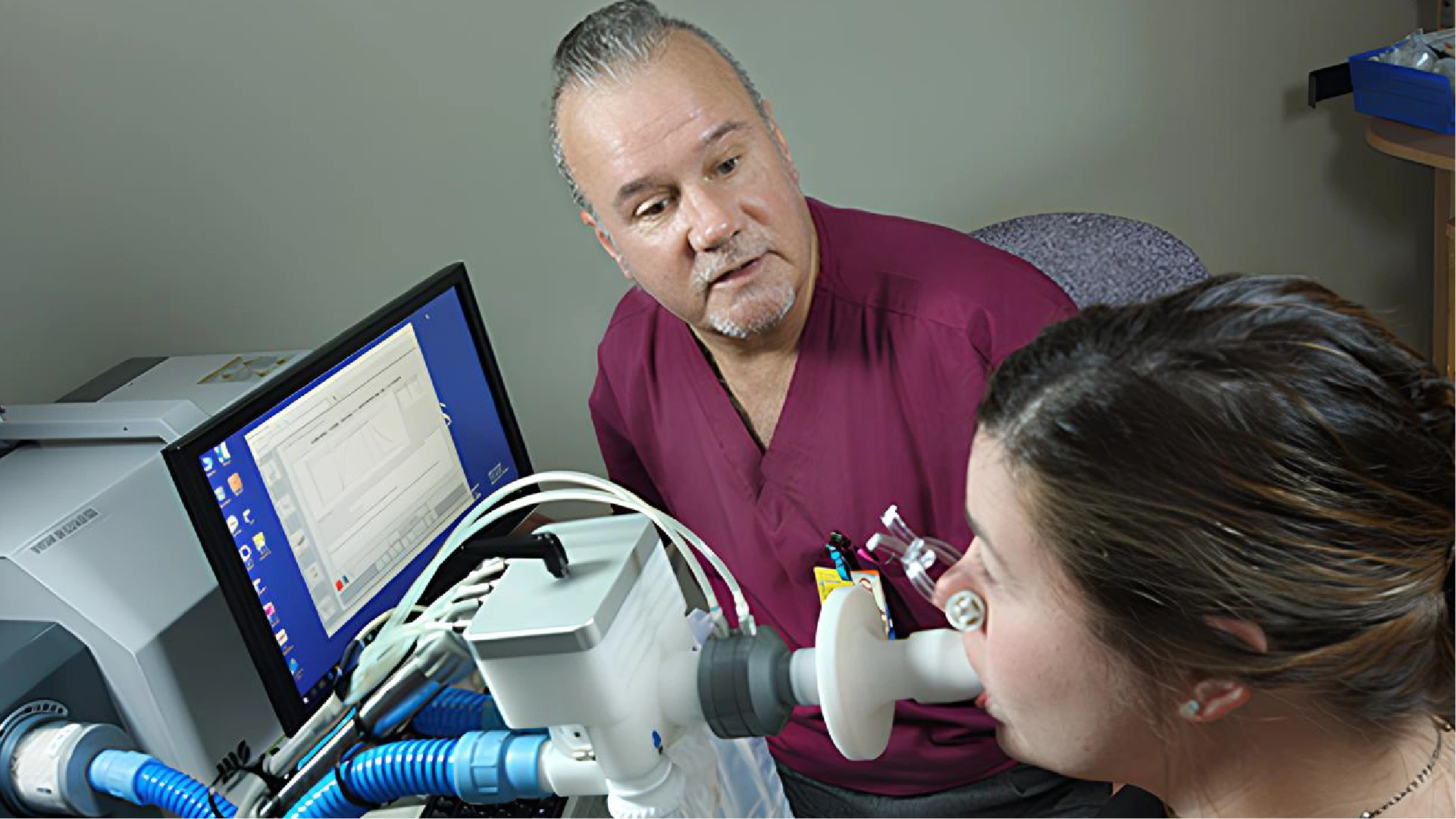What is a Pulmonary Function Test?
A Pulmonary Function Test (PFT) is a non-invasive diagnostic procedure that measures how well your lungs are working. It evaluates the lung volume, capacity, flow rates, and gas exchange to assess respiratory health and detect any abnormalities.
Why is Pulmonary Function Testing Important?
Pulmonary Function Tests are essential for diagnosing and managing respiratory diseases such as asthma, chronic obstructive pulmonary disease (COPD), pulmonary fibrosis, and other lung disorders. They help doctors understand the severity of lung impairment, monitor disease progression, and evaluate the effectiveness of treatment.
How is the Test Performed?
During the test, you will be asked to breathe into a device called a spirometer, which measures airflow and lung volume. Different maneuvers, such as deep breaths, forced exhalations, and breath-holding, are performed to gather comprehensive data on lung function. The procedure is painless, quick, and safe for patients of all ages.
Who Should Get a Pulmonary Function Test?
- Individuals experiencing symptoms like shortness of breath, chronic cough, or wheezing
- Patients with known lung diseases requiring regular monitoring
- Smokers or individuals exposed to lung irritants
- Preoperative assessments before certain surgeries
- Individuals working in environments with respiratory hazards
Benefits of Pulmonary Function Testing
- Early detection of lung diseases before symptoms appear
- Objective measurement of lung function to tailor treatments
- Monitoring response to medications and therapies
- Assessing fitness for surgery or certain physical activities
- Providing valuable information for occupational health assessments
What to Expect After the Test?
Results from the Pulmonary Function Test are analyzed by specialists to provide a detailed report on your lung health. Your doctor will explain the findings, discuss any necessary treatments, and recommend lifestyle changes or further tests if needed.


